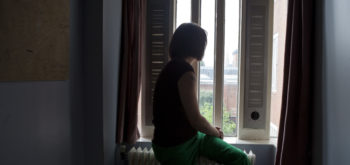Trade unions, women’s groups and charities, are calling on the equalities watchdog to investigate the Government’s response to the pandemic amid claims that its measures have affected women disproportionately.
A letter to the Equalities and Human Rights Commission signed by a coalition that includes the TUC, the Fawcett Society and Save the Children stated that ‘the policy decisions taken by government and other key public bodies in response to coronavirus are worsening the impact of the pandemic and deepening inequalities faced by women’. The letter also suggests that the Government has failed to meet its obligations under the Public Sector Equality Duty section of the Equality Act 2010 for not considering the impact of its policies on equality by means of an impact assessment.
Earlier this month, a report by the Women and Equalities Committee called for Equality Impact Assessments to be carried out and published by the Government on the effects of the Coronavirus Job Retention Scheme and the Self-Employment Income Support Scheme. While it recognises that these schemes provided an essential safety net to millions of people, it argues that its design overlooked the specificities of the labour market as it relates to the inequalities faced by women.
The lnstitute for Fiscal Studies estimated that women were ‘a third more likely to be employed in sectors that were “shut down” over the first national lockdown.’ Data from the Office for National Statistics shows that women made up 53% of people in temporary contracts and 55% of people in zero-hour contracts before the pandemic, making witnesses conclude that the gendered impacts of the pandemic were predictable.
The report states that furloughed workers in these less secure types of employment were less likely to have their wages topped up by employers, and also points to studies that indicate these people were more severely affected by the pandemic than those in secure types of employments.






